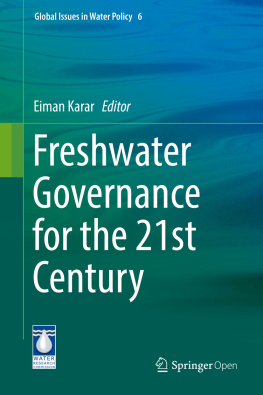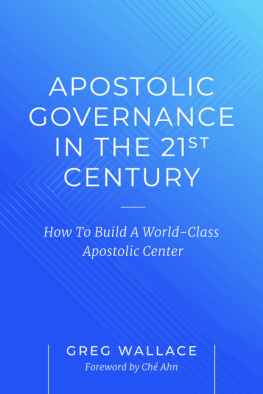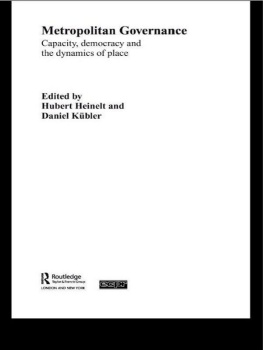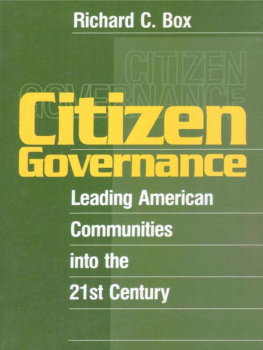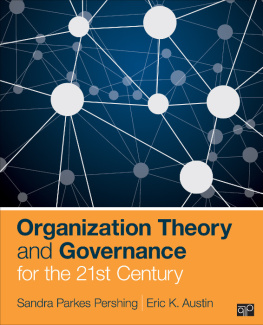1. Introduction and Reflections
This book explores the challenges most countries face in dealing with governance issues and highlights the advantages and disadvantages of various approaches to achieve effective freshwater governance for the twenty-first century. The idea for writing this book was triggered by the successful hosting of the International Conference on Fresh Water Governance for Sustainable Development, 57 November 2012, at the Champagne Sports Resort, Drakensberg, KZN, South Africa. At that conference, the need to bring together the research communities from different disciplines and practitioners at different levels of jurisdictions from around the world was tangible. The exchange of experiences and the interrogation of frameworks, policies and perceptions around best practice were invigorating. This book is not a direct result of that conference, but the exchange of experiences provided the impetus to embark on this undertaking.
The intention of this book is to pool some salient ideas around the thinking of water and its governance, tackling it from a global view to a local reality, from within and outside the numerous watersheds that fall under various administrative agencies to end users, the private sector and civil society. It can also identify sovereign boundaries and regional or transnational boundaries. As fluid as water is, so is the concept of its governance. A striking feature is that the term governance means different things to different people. The aim of this volume is not to provide a universal definition of governance; instead, each chapter will frame its own meaning in the context of the specific topic covered.
But first, one might ask why freshwater governance is of such importance and what is so special about the twenty-first century governance to warrant writing a book about it.
In his closing address at the Fresh Water Governance Conference on 7 November 2012, the CEO of the WRC , Dhesigen Naidoo , highlighted the fact that the global dialogue on water is generally unanimous that we are moving into a very difficult water future, on the back of factors including unprecedented population growth combined with rapid levels of economic movement, particularly in the developing world. The latter has resulted in growing middle classes with the resultant change in consumption patterns. This in many ways is starting to define the new Malthusian challenge of the twenty-first century. At the same time, years, decades and indeed centuries of environmentally insensitive and water-wasteful mining and industrial practices have come back to haunt us. This, combined with the newer challenges of global climate change, has defined the water challenge of the twenty-first century. We are also clear that developments in water sciences and engineering alone have not delivered adequately to engage this challenge, and there is a strong need to consider the social dynamics, culture and heritage issues towards more holistic and complete solutions. In fact, we have for a while in our individual corners been lamenting the lack of a reasonable dialogue on this very important matter of water governance.
The challenge of both water quantity and quality has become a sharp focus of our time. The global water conversation has taken a new turn on the back of increased information access and the world reaching a point where it is now impossible to ignore the scarcity of the resource. It is also important that the dialogue now includes business partners as the World Economic Forum recognises the availability of good quality water as a principal business risk globally. Those countries that have relatively larger successes in meeting the water challenge have done it on the back of four principal pillars. Firstly, the water management in these more successful areas is informed by high levels of science, technology and innovation. The decision-making is highly informed, and water is a critical upfront consideration in any development plan. The second is good, well-maintained infrastructure. The third is the development and availability of large pools of skilled talent to plan, develop, operate and maintain the water management system at all levels. The fourth and in many cases differentiating factor in most systems is water-use behaviours across the spectrum from large industry and agriculture to the individual at household level. It is easy to see that each of these elements and the quartet as a whole depend fundamentally on levels of water literacy and consciousness and the model of water governance.
Freshwater governance, as it has been discussed in the realm of peer-reviewed papers and equivalent conferences, has been seized with models of institutional arrangements and the critique of the hierarchies of laws. This has certainly been the obsession in democratic South Africa over the past 19 years. The most important learning in the frustration of insufficient implementation of what has been deemed the best national water law in the world, the South African National Water Act of 1998, is that a smartly conceived internationally leading model law is not enough. That while such a law represents the apex summary of the governance basket, its effective roll-out depends on the building of the various governance building blocks using the blueprint of the law as both the design eventuality and an indicative roadmap. Water governance is seen as a multisectoral, dynamic process, a complex socioecological system involving continuous learning and the capacity to adapt effectively to unpredictable outcomes, where the results of system interventions are not predictable.
Three main messages have emerged from the discussions and analyses that are summarised in the pages that follow. First, old forms of governance in both the public and private sectors are becoming increasingly ineffective. Second, the new forms of governance that are likely to be needed over the next few decades will involve a much broader range of active players. Third, and perhaps most importantly, two of the primary attributes of todays governance systems the usually fixed and permanent allocations of power that are engraved in the structures and constitutions of many organisations and the tendency to vest initiative exclusively in the hands of those in senior positions in the hierarchy look set to undergo fundamental changes.
The objective of this book is to illustrate, in broad terms, the general matters of freshwater governance, mapping the spectrum of decision-making, from a technocentric and ecocentric approach, or a hybrid concept, to a people-centric approach, mapping the transition. The challenges to water governance models will be considered as well as examining the multilevel provisions, the integration challenge, the hierarchy for decision-making, the emergence of water-sensitive designs in urban as well as rural settings, the interdependencies between the stakeholders, the power play in inclusive participation and the issue of geographic scales and boundaries. This information will be presented in an integrated and a comprehensive way building on some detailed case studies from around the world. The set of book chapters presented in this volume will be based on the existing current knowledge as well as the authors experience working in the water sector, using non-technical jargon in order to reach a wider audience. The target audience of this volume will range from academics, technicians, decision-makers and managers to students; the aim is to target not just academia but also policy-makers and deep thinkers.

